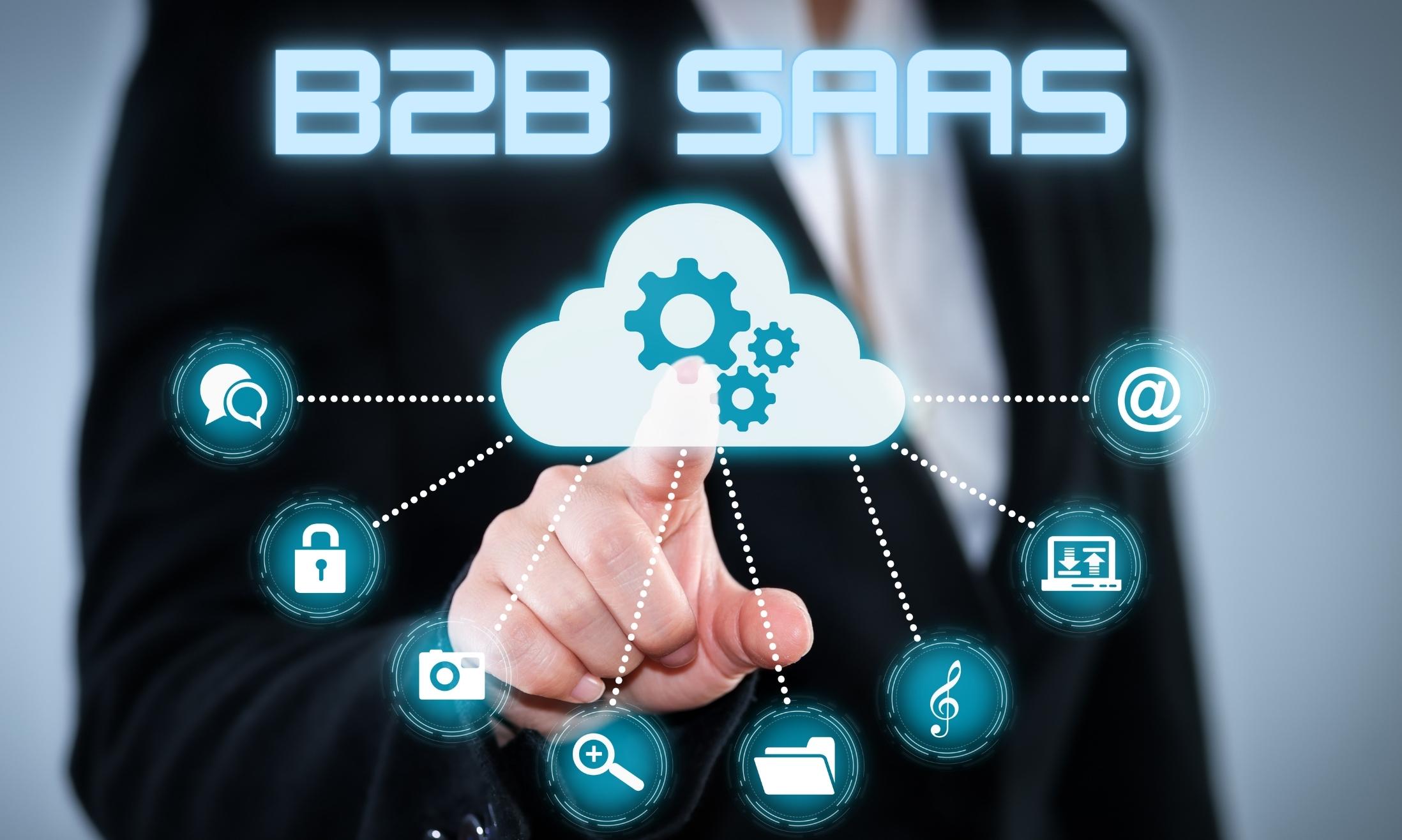As more and more businesses move to the cloud, the need for software that can help manage and automate these processes grows. This challenge is particularly acute for businesses in the B2B (business-to-business) sector, where competition is fierce and customer expectations are soaring.
B2B SaaS is having a profound impact on the way businesses operate. It is enabling businesses to become more agile, innovative, and customer-centric. It is also leveling the playing field, giving small businesses access to the same powerful software tools as large enterprises.
This blog will explore the world of B2B SaaS in more detail. Let’s discuss the different types of B2B SaaS applications, the benefits of adopting B2B SaaS, and look at some of the best B2B SaaS providers!
What Is B2B SaaS?
B2B SaaS, or Business-to-Business Software as a Service, is a model of providing software solutions to businesses through the cloud. In this arrangement, software applications are hosted and maintained by a SaaS provider and made accessible to other businesses on a subscription basis.
B2B SaaS products cover a wide range of functions, from customer relationship management (CRM) and project management to accounting and human resources.
B2B SaaS allows companies to access powerful tools without the need for in-house infrastructure and IT management, making it a cost-effective solution for various business needs.
What Are The Types Of B2B SaaS?

B2B SaaS can be categorized into several types based on the specific business functions they serve.
There are many other types of B2B SaaS products available. These products can help businesses save time and money, and improve their operations.
- Customer Relationship Management (CRM) Software: This category helps businesses manage their interactions with customers, including sales leads, orders, and support tickets. Popular examples include Salesforce, HubSpot, and Zoho CRM.
- Enterprise Resource Planning (ERP) Software: ERP software assists businesses in managing a wide range of business processes, including finance, human resources, and supply chain management. Prominent examples include SAP, Oracle, and Microsoft Dynamics 365.
- Project Management Software: This type of software aids businesses in planning, executing, and tracking their projects. Well-known examples include Asana, Trello, and Basecamp.
- Content Management Systems (CMS): CMS software is designed to help businesses create, manage, and publish their website content. Common examples include WordPress, Drupal, and Joomla.
- Communication and Collaboration Tools: These tools facilitate communication and collaboration among businesses. Some of the popular options include Slack, Microsoft Teams, and Zoom.
- Marketing Automation Software: Marketing automation software streamlines marketing processes, such as email marketing and social media marketing. Notable examples include Marketo, Pardot, and HubSpot Marketing Hub.
- Sales Enablement Software: The sales enablement category helps businesses train and equip their sales teams with the information and tools they need to sell more effectively. Popular solutions include Salesforce Sales Cloud, HubSpot Sales Hub, and Seismic.
- Human Capital Management (HCM) Software: HCM software assists businesses in managing their human resources, including payroll, benefits, and hiring. Well-recognized examples include Workday, ADP, and Oracle HCM Cloud.
- E-commerce Platforms: These platforms help businesses sell their products and services online. Prominent choices include Shopify, Magento, and BigCommerce.
- Financial Management Software: Financial management software is designed to help businesses manage their finances, including budgeting, forecasting, and reporting. Noteworthy examples include QuickBooks, Xero, and NetSuite.
- Customer Support Software: This category aids businesses in providing support to their customers, including ticketing systems and live chat. Popular solutions include Zendesk, Salesforce Service Cloud, and HubSpot Service Hub.
- Business Intelligence (BI) Software: BI software enables businesses to analyze their data to make better business decisions. Prominent examples include Power BI, Tableau, and Qlik Sense.
- Security and Compliance Software: These solutions help businesses protect their data and comply with regulations. Recognized choices include Okta, Duo Security, and McAfee.
The Benefits Of Using B2B SaaS

Businesses are turning to B2B SaaS (Business-to-Business Software as a Service) solutions for a variety of reasons. Here are the benefits of using B2B SaaS:
- Scalability and Flexibility: SaaS applications provide the flexibility to increase or decrease their capacity as needed without significant upfront investments in software and hardware. This can be a major advantage for businesses that are experiencing rapid growth or that have fluctuating workloads.
- Cost-Effectiveness: SaaS employs a subscription-based model, often more cost-effective than traditional on-premises software. Providers manage infrastructure, maintenance, and updates, freeing IT for strategic work. Moreover, it minimizes upfront capital costs, eliminating the need for costly hardware and licenses.
- Improved Accessibility: SaaS applications are accessible from anywhere with an internet connection, which can improve employee productivity and collaboration. Employees can access their work files and applications from their desktops, laptops, tablets, and smartphones, which can give them more flexibility to work from anywhere, including remote locations.
- Enhanced Security: SaaS providers typically have a strong focus on security, as they are responsible for protecting the data of their customers. SaaS applications are often hosted on secure cloud platforms that are subject to rigorous security audits and compliance standards. This can help businesses reduce the risk of data breaches and other security incidents.
- Automatic Updates: SaaS providers are responsible for updating and maintaining their applications, which can free up IT resources to focus on other priorities. Businesses can always be sure that they are using the latest version of the software, which can help to improve security and performance.
- Easy Integration: SaaS applications are often designed to be easily integrated with other business applications, which can help to improve data visibility and streamline workflows. Businesses can connect their SaaS applications to their existing CRM, ERP, and other business systems to create a unified view of their data.
- Continuous Innovation: SaaS providers are constantly investing in research and development to improve their applications and add new features. This can help businesses stay ahead of the competition and adapt to changing market conditions.
- Improved Customer Service: SaaS providers typically offer a high level of customer support to their users. This can help businesses quickly resolve any issues that they may encounter with the software.
Overall, B2B SaaS offers several potential benefits for businesses of all sizes. By adopting SaaS solutions, businesses can improve their operational efficiency, reduce costs, and gain a competitive advantage.
How Does B2B SaaS Differ From B2C SaaS?

B2B SaaS (Business-to-Business Software as a Service) and B2C SaaS (Business-to-Consumer Software as a Service) share the commonality of being cloud-based software solutions delivered over the Internet. However, they diverge in several crucial aspects that set them apart.
Here is a table that summarizes the key differences between B2B SaaS and B2C SaaS:
| Feature | B2B SaaS | B2C SaaS |
|---|---|---|
| Target audience | Businesses | Individual consumers |
| Sales cycle | Longer | Shorter |
| Pricing | Per-user or per-seat | Per-subscription |
| Features | More | Fewer |
| Support | More | Less |
Target Audience: The most fundamental difference lies in their intended user base. B2B SaaS applications are meticulously crafted for businesses and are meant to cater to the complex requirements and demands of professional users. In contrast, B2C SaaS applications are designed for individual consumers, focusing on personal tasks and entertainment.
Sales Cycle: Another significant contrast is in the sales cycle. B2B SaaS applications generally have a more extended sales cycle compared to B2C SaaS. This is primarily because B2B businesses typically involve a more intricate decision-making process. Convincing a business to invest in a SaaS solution often requires thorough demonstrations, negotiations, and addressing specific business needs.
Pricing Model: Pricing models also diverge between B2B and B2C SaaS. B2B SaaS applications are typically priced on a per-user or per-seat basis, reflecting the number of employees or team members who will be using the software. In contrast, B2C SaaS applications are commonly priced on a per-subscription basis, allowing individual consumers to access the software for a fixed fee.
Features and Complexity: B2B SaaS applications tend to be more feature-rich and intricate compared to their B2C counterparts. B2B software is often equipped with advanced functionalities, integrations, and customization options to align with the diverse operations and processes within a professional environment. B2C SaaS prioritizes simplicity and ease of use to cater to the broader consumer market.
Support and Assistance: The level of support provided by B2B SaaS applications generally surpasses that of B2C SaaS. Businesses frequently require a higher degree of hand-holding, comprehensive customer support, and assistance in their operations. Individual consumers using B2C SaaS typically have lower support needs, and the software is often designed for self-service and user-friendliness.
Overall, B2B SaaS and B2C SaaS are both important segments of the SaaS market. However, they have different target audiences, sales cycles, pricing models, feature sets, and support levels. Businesses that are considering developing or using a SaaS application should carefully consider their target audience and needs to determine which type of SaaS application is right for them.
Top 10+ Famous B2B SaaS Providers
Navigating the vast landscape of B2B (Business-to-Business) Software as a Service (SaaS) providers can be a daunting task for businesses seeking efficient and reliable solutions to address their unique needs.
We’ll introduce you to a curated list of the top 10+ famous B2B SaaS providers. These providers have consistently demonstrated their ability to meet the diverse demands of businesses across various industries, making them stand out in the world of SaaS.
1. Google Workspace
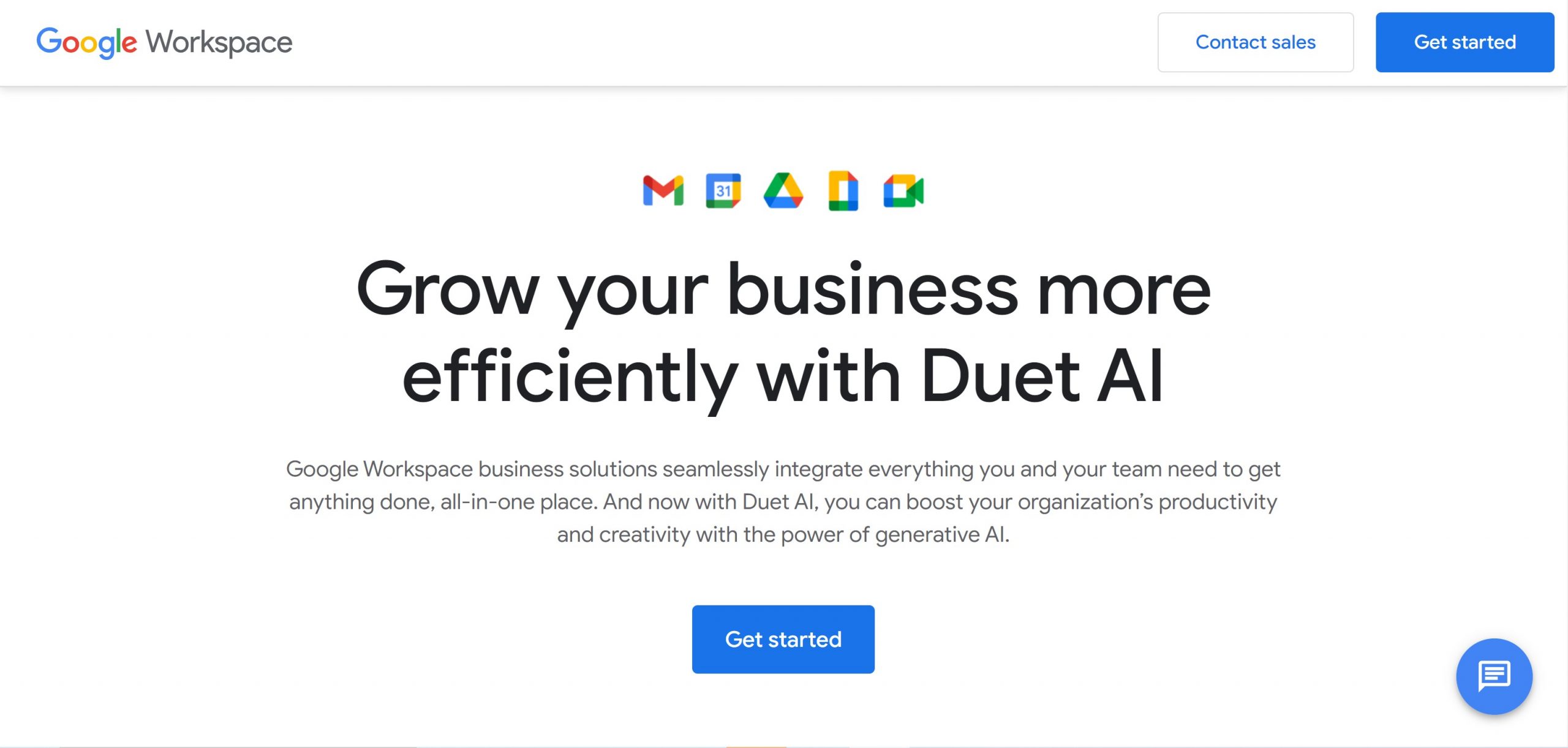
Google is a multinational technology company that specializes in Internet-related services and products, which include online advertising technologies, a search engine, cloud computing, software, and hardware.
Google offers a suite of cloud-based productivity tools called Google Workspace, which includes Gmail, Calendar, Drive, Docs, Sheets, Slides, Meet, Chat, Forms, and Sites. Google Workspace is used by over 3 billion users worldwide.
Key features:
- Seamless integration with other Google products and services
- Wide range of productivity tools for various business needs
- Collaborative features for real-time teamwork
- Secure and reliable cloud-based infrastructure
2. Shopify
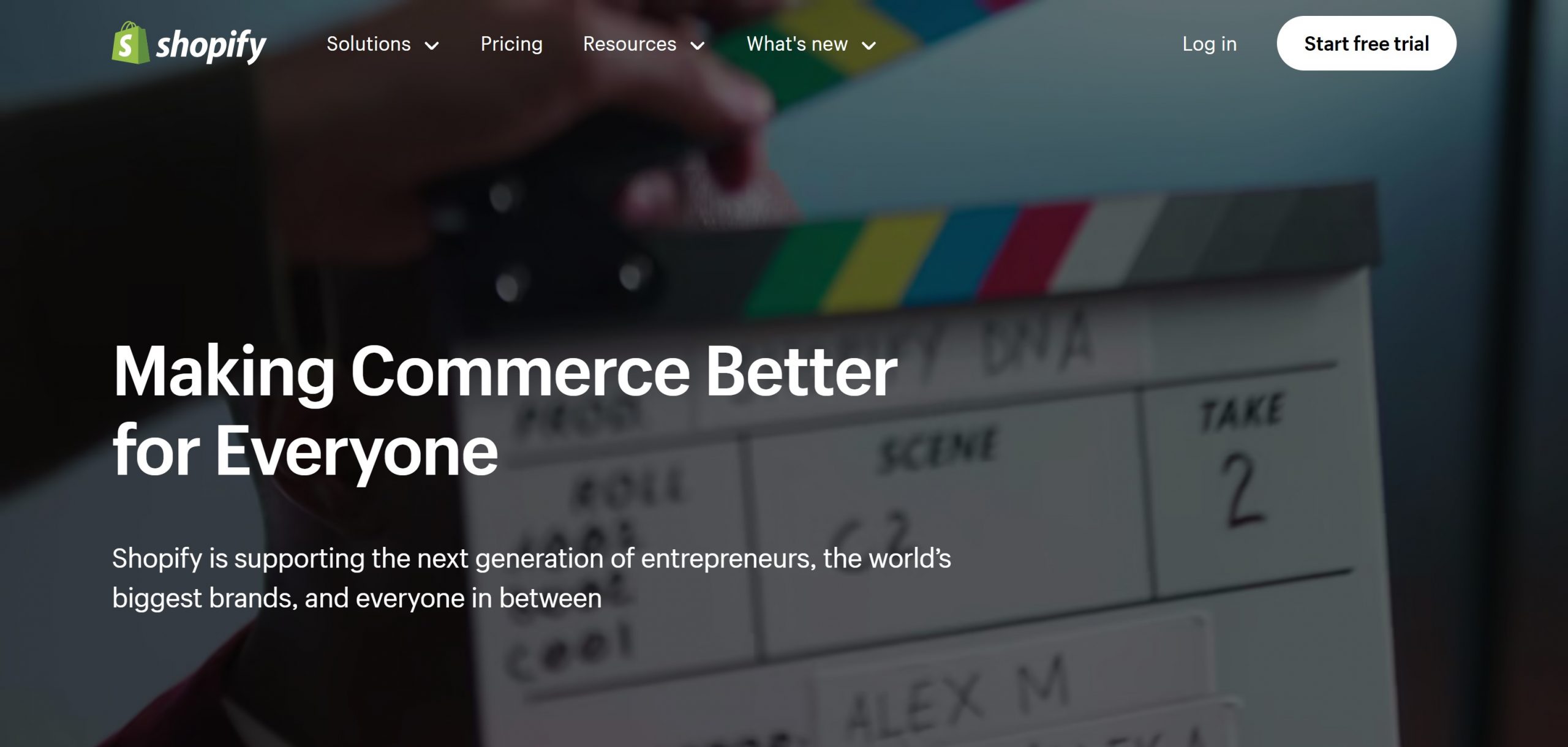
Shopify is a cloud-based e-commerce platform that allows businesses to create and manage an online store. Shopify is used by over 1 million businesses worldwide.
Key features:
- Easy-to-use store builder with no coding required
- Wide variety of themes and templates to choose from
- Powerful e-commerce features for product management, inventory management, and payment processing
- Robust marketing and analytics tools to grow your online business
3. Oracle
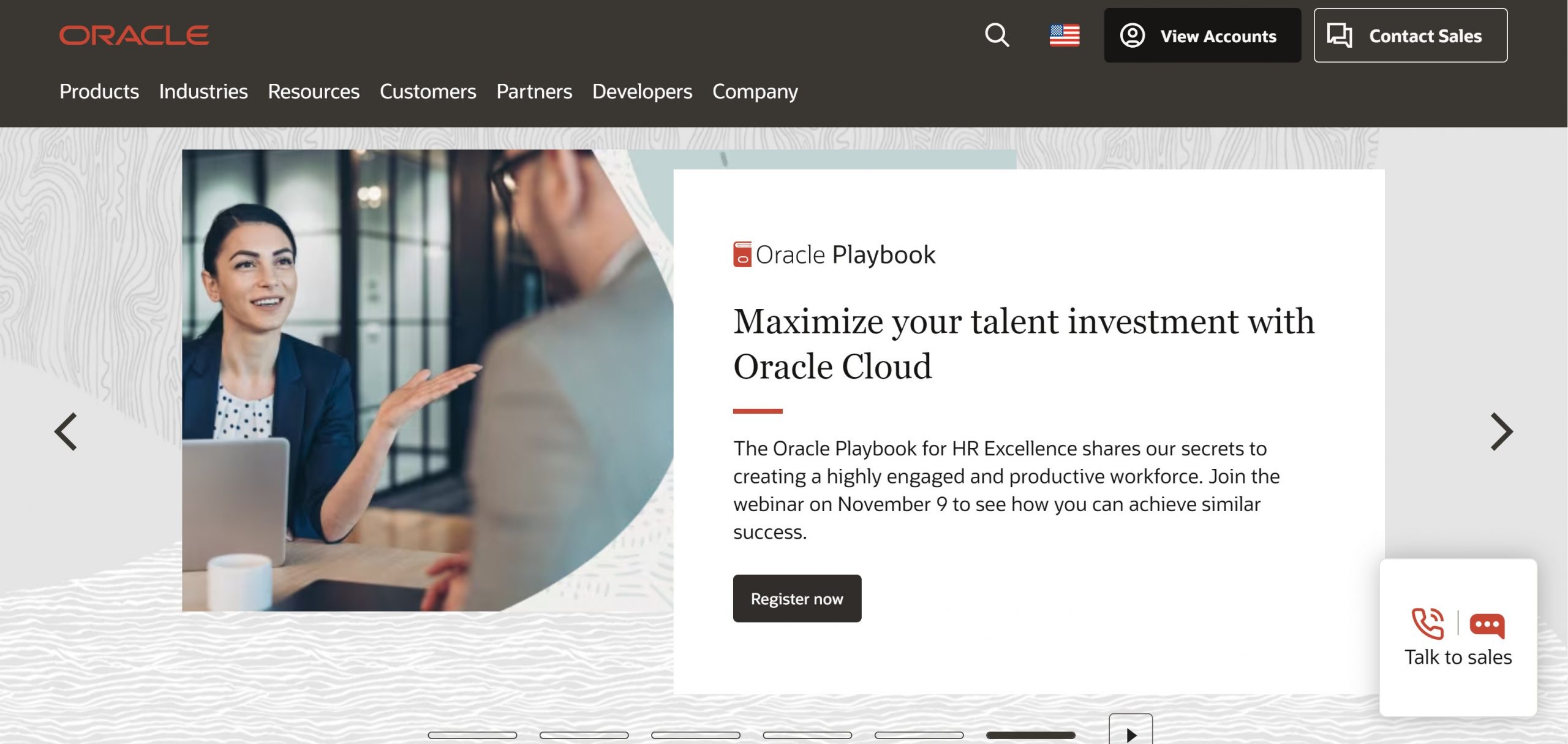
Oracle Corporation is an American multinational computer technology corporation headquartered in Redwood City, California. It specializes in developing and marketing database software and technology, cloud-engineered systems, and enterprise business software.
Key features:
- Comprehensive enterprise resource planning (ERP) and customer relationship management (CRM) solutions
- Scalable and adaptable to support businesses of all sizes
- Proven reliability and performance in mission-critical environments
- Deep industry expertise across various sectors, including finance, healthcare, and retail
4. Microsoft
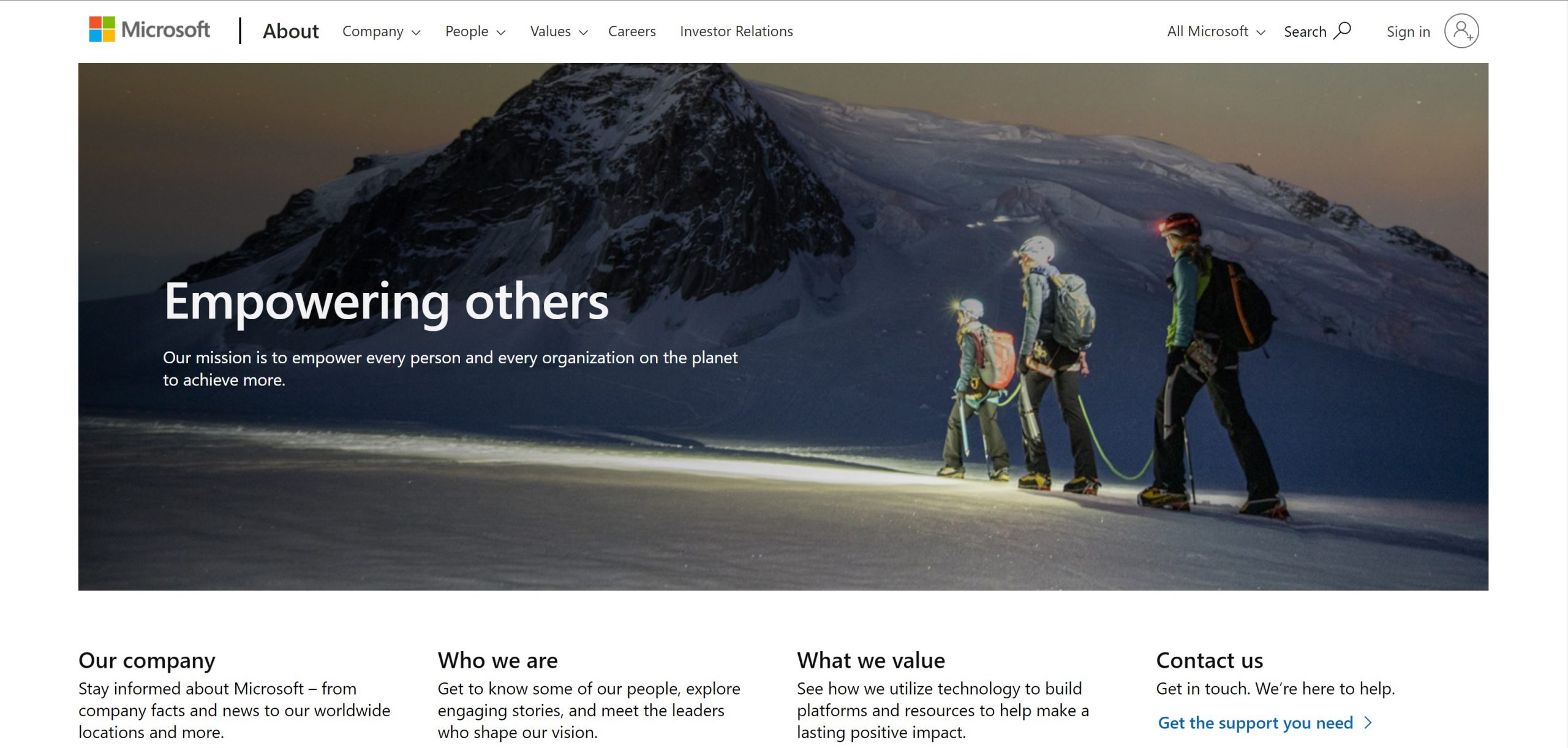
Microsoft Corporation is an American multinational technology corporation headquartered in Redmond, Washington. It develops, manufactures, licenses, supports, and sells computer software, consumer electronics, personal computers, and related services.
Microsoft offers a suite of cloud-based productivity tools, such as Microsoft 365, which includes Word, Excel, PowerPoint, and Outlook. Microsoft also provides a platform for enterprise applications, such as Dynamics 365 and Power BI.
Key features:
- Familiar and widely used productivity tools
- Integration with other Microsoft products and services
- Robust cloud-based infrastructure for scalability and reliability
- Continuous updates and new features to enhance productivity and collaboration
5. Adobe
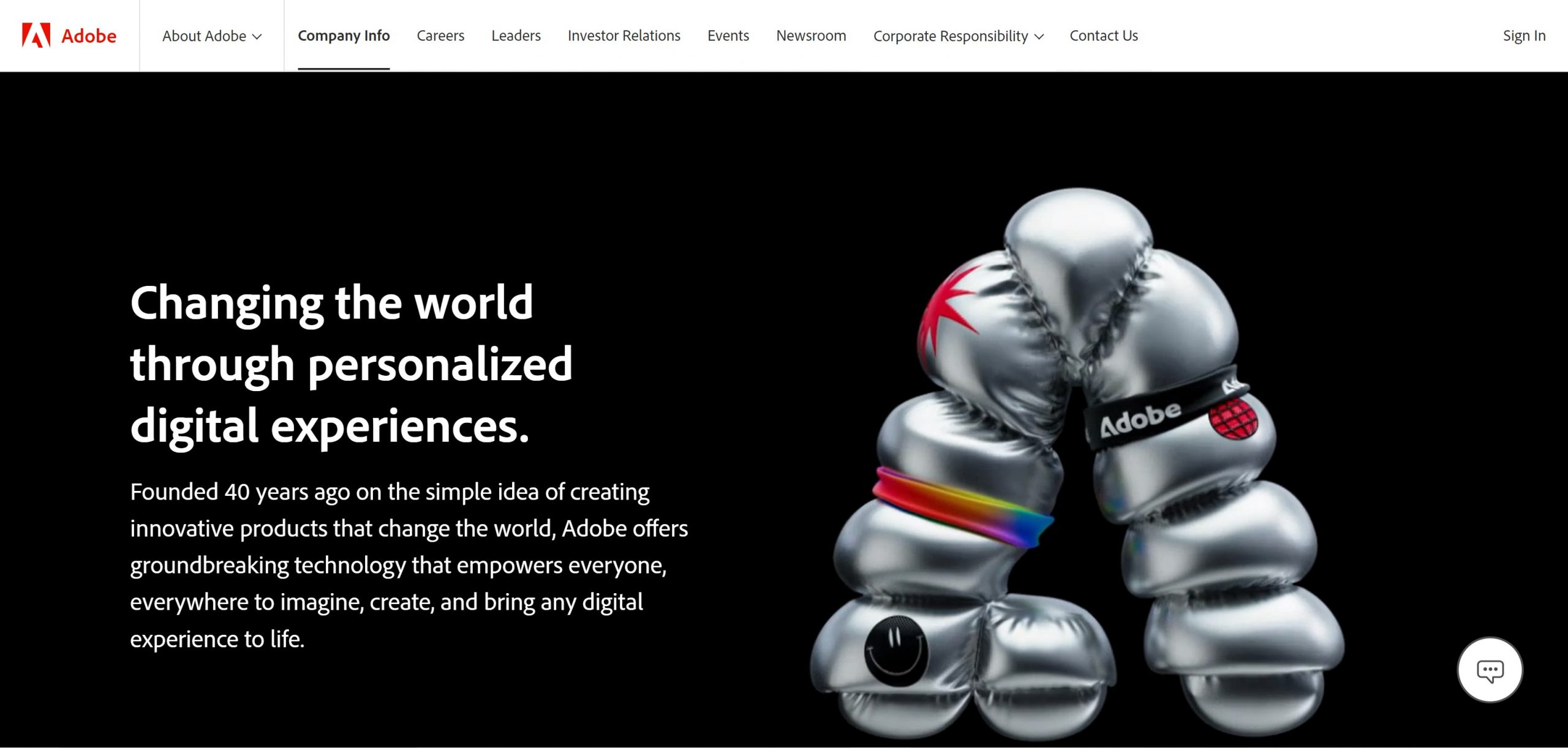
Adobe Inc. is an American multinational computer software company headquartered in San Jose, California. It has been a leader in the creation of multimedia and creativity software products, with a portfolio of well-known brands such as Photoshop, Illustrator, Acrobat, and After Effects.
Key features:
- Industry-leading creative tools for graphic design, web design, video editing, and photography
- Continuous innovation and development of new features and technologies
- Integration with other Adobe products and services
- Cross-platform compatibility for working on different devices and operating systems
6. SAP
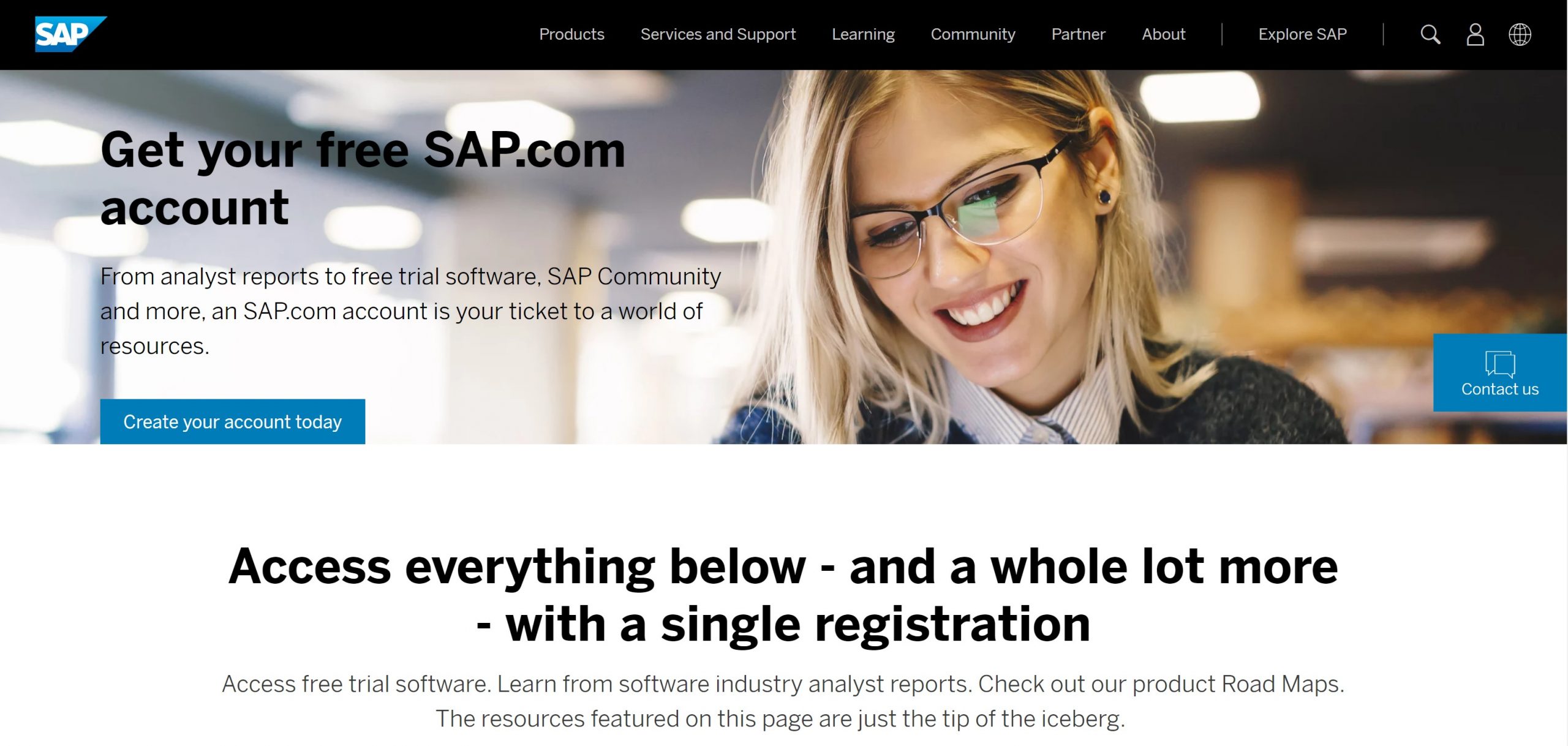
SAP SE is a German multinational software corporation based in Walldorf, Baden-Württemberg. It develops and sells on-premises and cloud-based enterprise software and business software applications. SAP is the world’s largest software vendor by revenue.
Key features:
- Comprehensive ERP and CRM solutions for businesses of all sizes
- Scalability and flexibility to adapt to changing business needs
- Deep industry expertise across various sectors, including manufacturing, retail, and healthcare
- Proven reliability and performance in mission-critical environments
7. Zoho
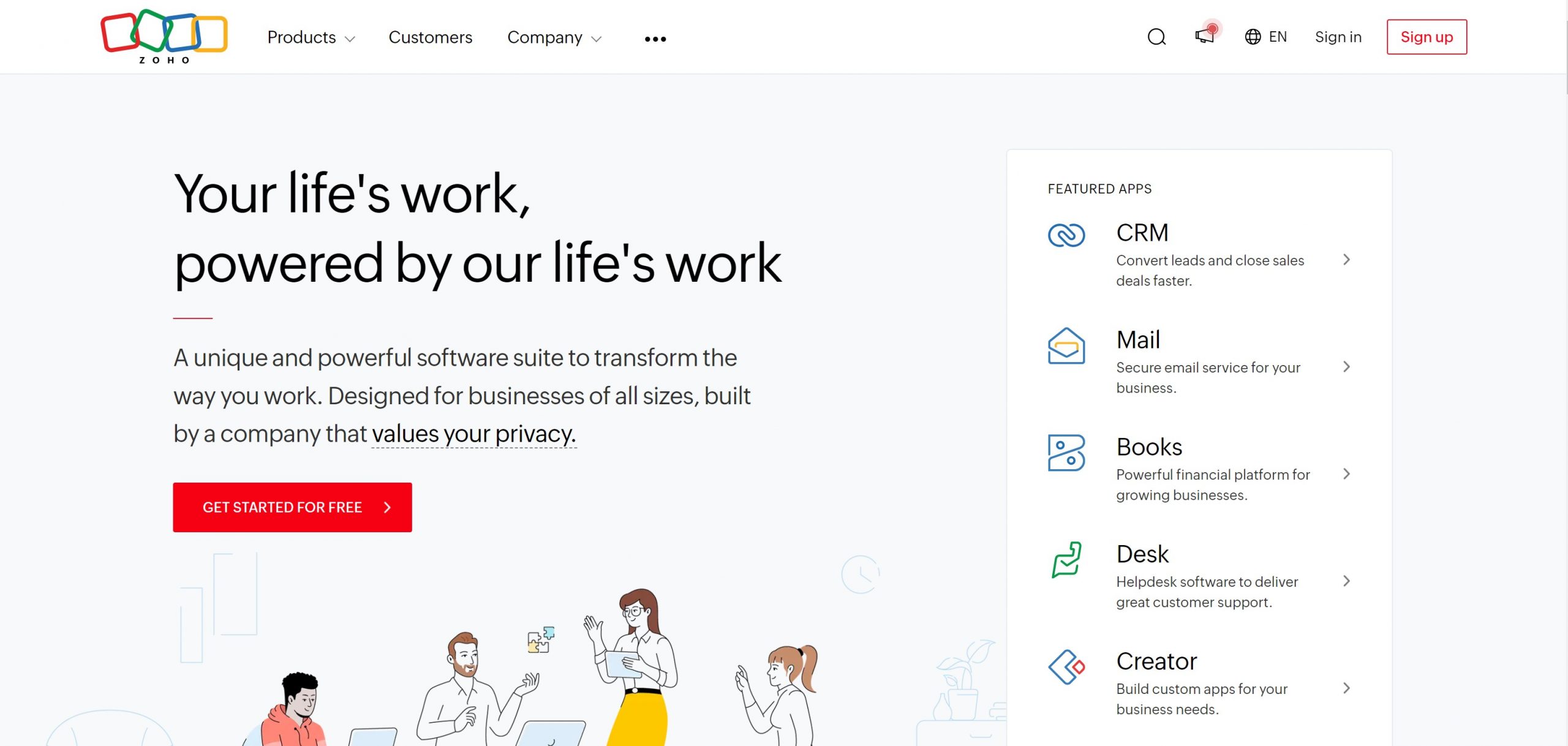
Zoho Corporation is an Indian multinational technology company that develops and sells a wide range of web-based business software and productivity tools. Zoho’s software is used by over 50 million users worldwide.
Key features:
- The suite of over 50+ integrated business applications
- Affordable and flexible pricing options to suit different business needs
- Easy-to-use interface and intuitive design
- Strong customer support and training resources
8. AppDirect
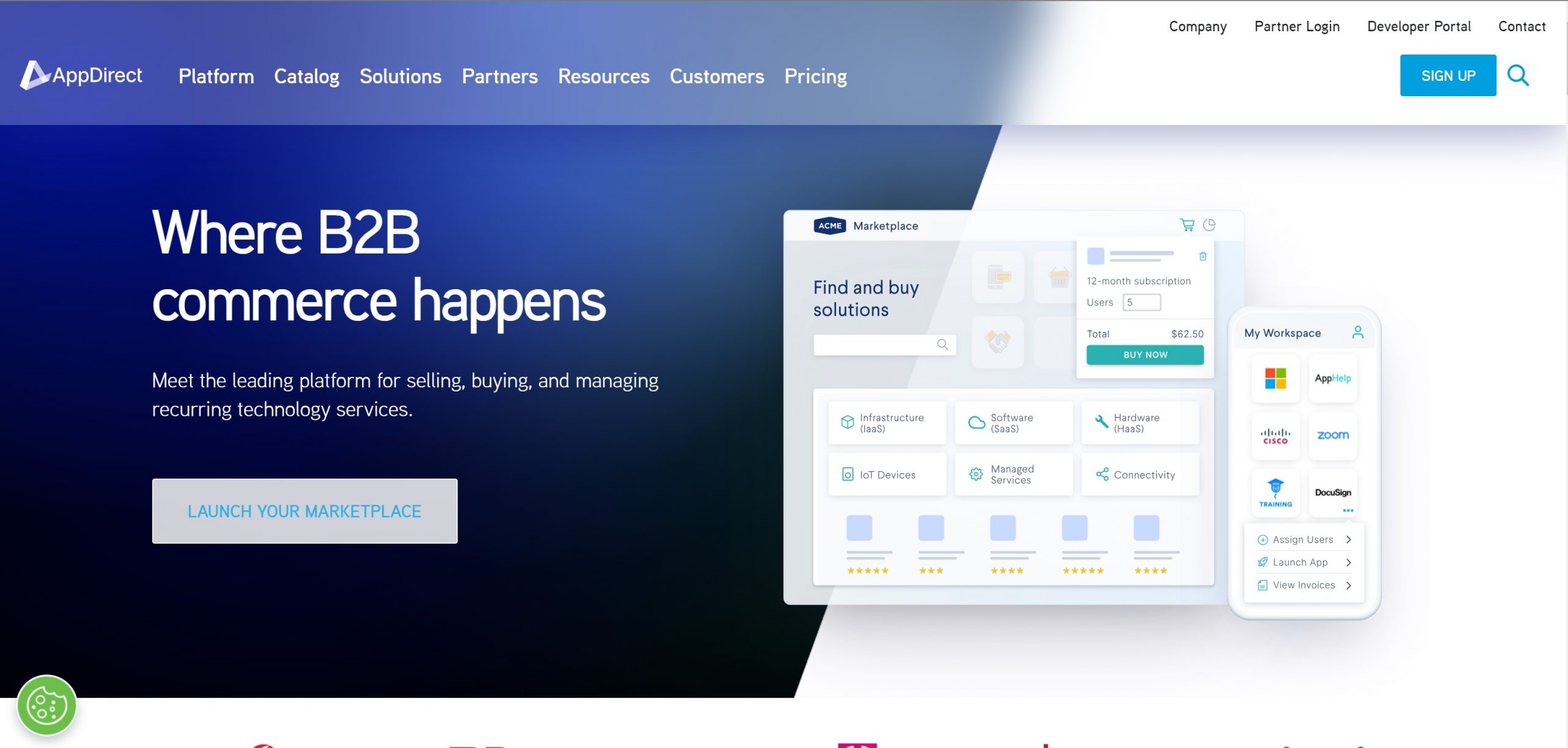
AppDirect is a cloud-based commerce platform that helps businesses discover, manage, and distribute software applications. AppDirect is used by over 10,000 businesses worldwide.
Key features:
- Self-service marketplace for finding and subscribing to software applications
- Streamlined billing and payment processing
- Automated provisioning and deployment of software applications
- Robust reporting and analytics for managing software usage
9. Dropbox
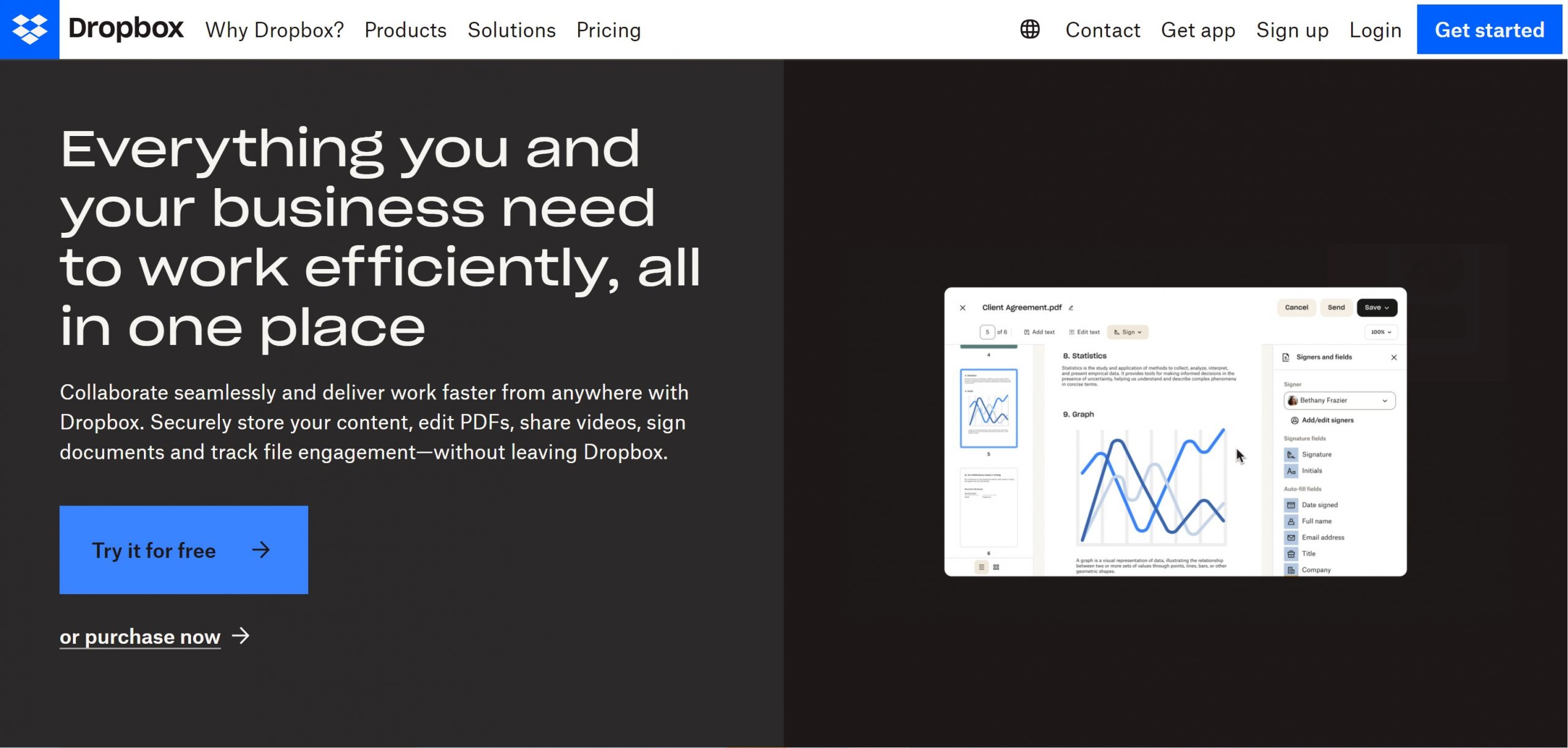
Dropbox is a cloud-based storage service that allows users to store and share files online. It provides a variety of features for businesses, such as secure file sharing, file versioning, and administrative controls. Dropbox is used by over 500 million users worldwide, including over 150,000 businesses.
Key features:
- Secure file storage and sharing
- File versioning to recover previous versions of files
- Administrative controls for managing user access and permissions
- Integration with other business applications, such as Microsoft 365 and Google Workspace
10. Mailchimp
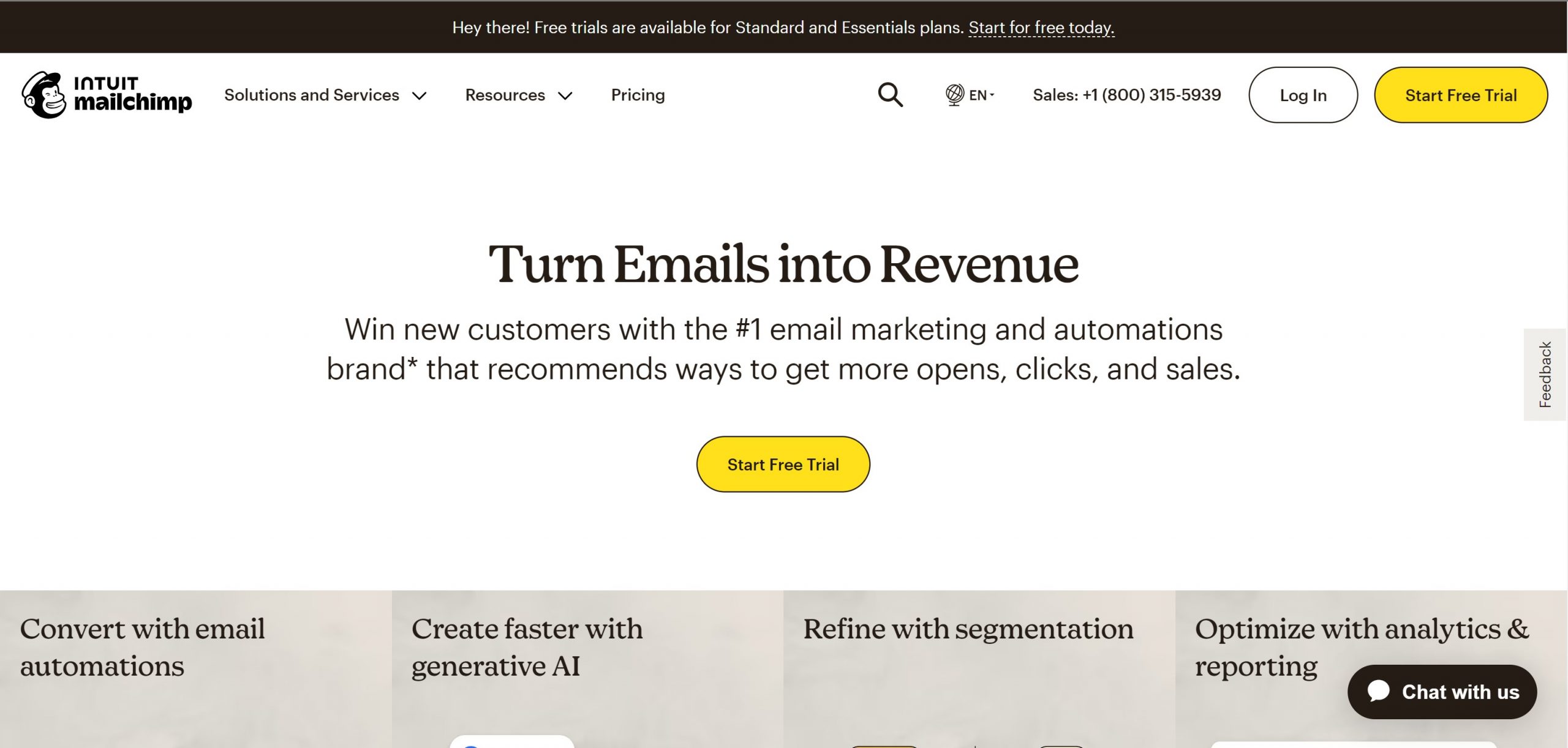
Mailchimp is an email marketing platform that helps businesses create, send, and track email campaigns. It provides a variety of features for businesses, such as email templates, automation tools, and analytics reports. Mailchimp is used by over 2 million businesses worldwide.
Key features:
- Easy-to-use email campaign builder with drag-and-drop functionality
- Wide variety of email templates to choose from
- Automation tools to send emails based on specific triggers or events
- Analytics reports to track email performance and measure campaign success
11. Slack
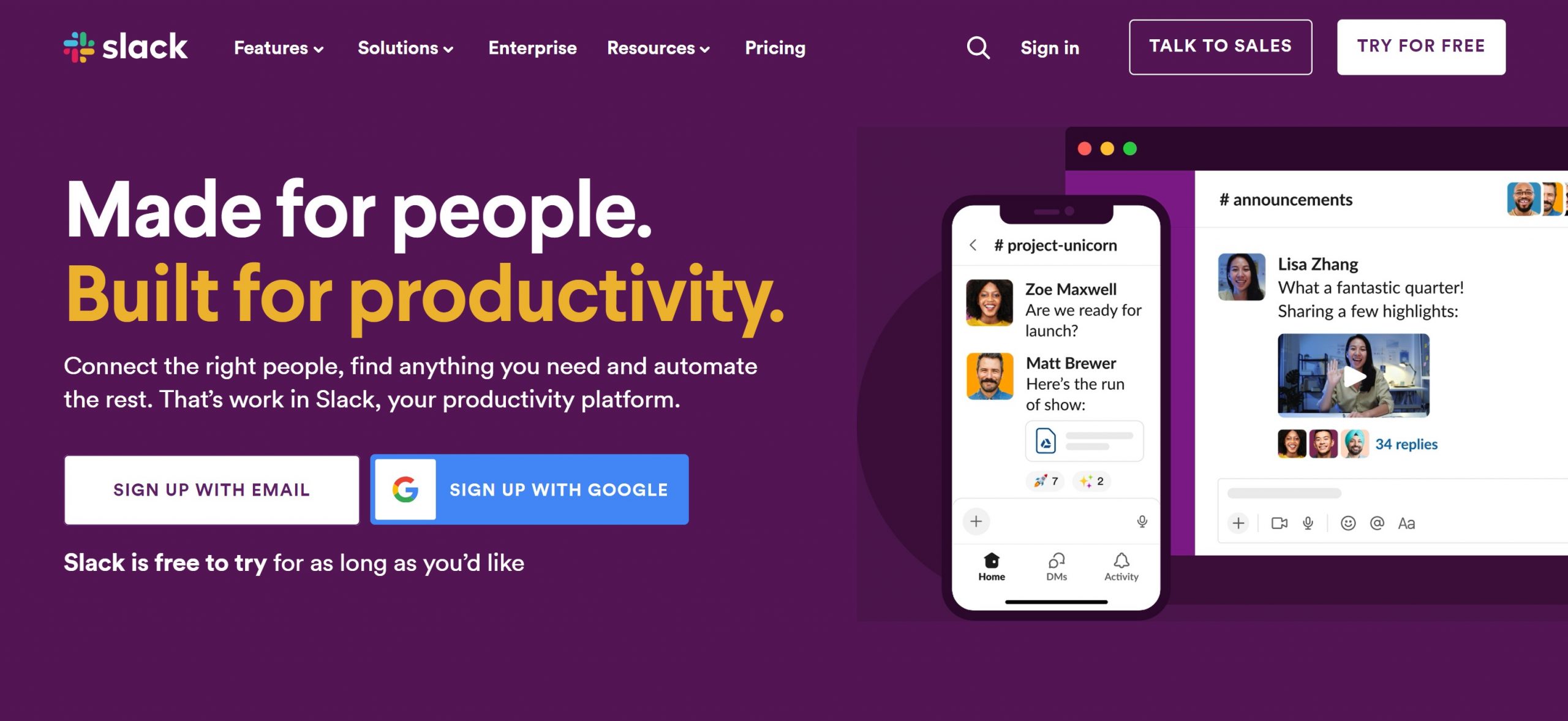
Slack is a cloud-based team communication platform that allows teams to communicate and collaborate. It provides a variety of features for businesses, such as chat rooms, file sharing, and video conferencing. Slack is used by over 12 million active teams worldwide.
Key features:
- Centralized communication hub for team conversations and file sharing
- Real-time chat with threaded conversations for easy organization
- Integration with other business applications, such as Google Workspace and Microsoft 365
- Video conferencing capabilities for face-to-face communication
12. HubSpot
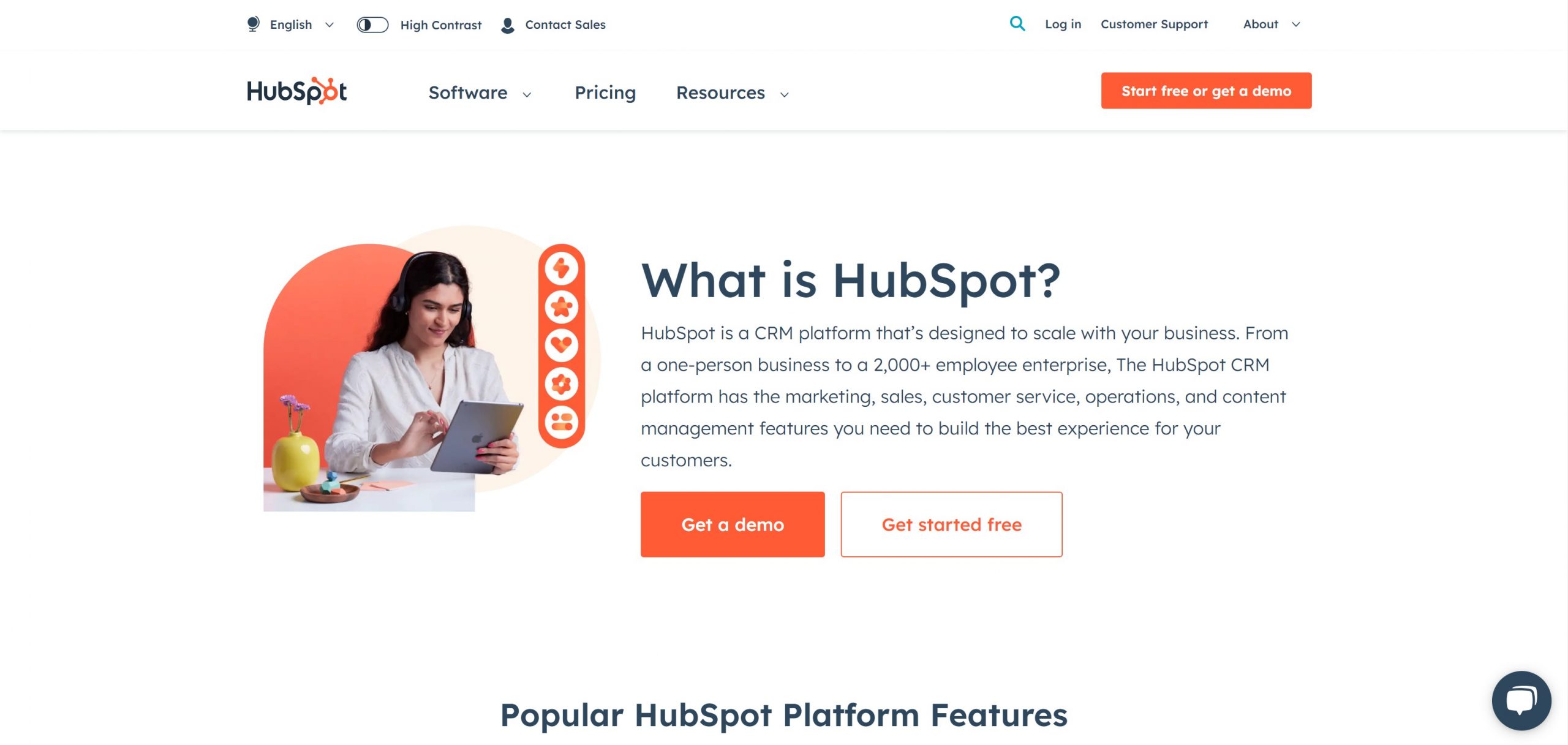
HubSpot is a CRM platform that helps businesses attract, engage, and delight customers. It provides a variety of features for businesses, such as marketing automation, salesforce automation, and customer service tools. HubSpot is used by over 135,000 businesses worldwide.
Key features:
- Comprehensive CRM platform for managing customer relationships throughout the entire lifecycle
- Marketing automation tools to nurture leads and automate marketing tasks
- Sales automation tools to streamline the sales process and improve close rates
- Customer service tools to provide excellent customer support and resolve issues quickly
Considered Factors When Choosing a B2B SaaS Application

Business Needs
Before diving into the world of B2B SaaS, take a step back and clearly define your business needs and objectives. This foundational step is essential as it ensures that the SaaS application you select is aligned with your goals and can effectively address your pain points. By understanding your specific requirements and challenges, you’ll be better equipped to make an informed choice that benefits your business.
Features and Functionality
Not all B2B SaaS applications are created equal, so a thorough evaluation of the features and functionality they offer is crucial. Dive into the details and assess which applications best meet your specific requirements.
Consider how well these features integrate with your existing workflows and whether they align with your business processes. Remember that the right features can streamline operations and improve productivity, making a significant impact on your bottom line.
Pricing
Cost is a critical consideration when adopting a B2B SaaS solution. Carefully evaluate the pricing models and associated costs of different applications. Ensure that your chosen SaaS aligns with your budget while delivering a solid return on investment.
Keep in mind that while cost-effectiveness is important, it should be balanced with the value and features offered, so you’re not compromising essential capabilities to save a few dollars.
Customer Support and Training
The level of customer support and training offered by your SaaS provider can greatly impact your overall experience. Investigate the assistance and resources available for onboarding, troubleshooting, and ongoing support.
Adequate support ensures you have a lifeline when issues arise, reducing downtime and frustration. Comprehensive training materials help you make the most of your investment, improving user competence and efficiency.
Vendor Reputation and Track Record

Don’t overlook the importance of the vendor’s reputation and track record. Research customer reviews, industry expertise, and financial stability to ensure you’re choosing a reliable partner.
A vendor with a strong reputation is more likely to provide consistent service and ongoing innovation, reducing the risk of disruptions or unforeseen challenges in the future.
Scalability and Flexibility
When selecting a B2B SaaS application, opt for one that can scale and flex alongside your business. This means ensuring it can accommodate future growth, changes in operations, and new demands.
The flexibility to adjust and expand as needed will help you avoid disruptions and costly migrations down the road, keeping your business agile and responsive to market changes.
Integrations and Compatibility
Smooth integration with your existing systems and software is paramount. When evaluating B2B SaaS applications, assess their ability to integrate with your current business infrastructure.
Compatibility ensures seamless data exchange and minimizes disruptions in your workflow, allowing you to leverage the SaaS’s full potential without struggling with interoperability issues.

